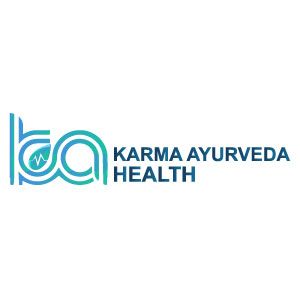Why is Ayurvedic treatment majorly advocated for PKD cure?As the name implies, polycystic kidney disease is a health problem pertaining to kidneys majorly. This medical condition is characterized by multiple cysts' growth in the kidneys and some other body organs. It is a hereditary health problem that occurs due to gene inheritance. In other words, a PKD patient gets the disease from one or both parents from gene mutation. PKD mainly affects kidneys, but when it turns severe, it may also cause cysts to grow in the liver, heart, and pancreas, etc. These cysts grow with the passing time, and eventually, they take their utmost form, thus cause an abnormal increase in kidneys’ size. The kidney tissues get destroyed with the increasing size of the cysts, so kidneys may get failed.
Symptoms of Polycystic kidney disease
Like other kidney diseases, PKD is also asymptomatic until the cysts do not damage the kidneys. When the kidneys get damaged severely by cysts, many symptoms can be seen. Primarily, uncontrollably high blood pressure is the primary sign of polycystic kidney disease. Along with that, many other symptoms such as nausea, vomiting, change in urine pattern, body itching, muscle cramping, loss of appetite, back or side pain, kidney stones, urinary tract infection or kidney infections, and blood in the urine, etc.
The symptoms of polycystic kidney disease vary as per its types. Commonly, PKD is divided into two types; Autosomal dominant and Autosomal recessive polycystic kidney disease.
Autosomal dominant PKD- It’s the most common form of PKD that is also called adult polycystic kidney disease. An individual can get this disease if any of his parents have the gene of the disease. This PKD causes symptoms when patients reach their 30s or above. In some cases, patients do not notice any symptoms to the end years of their life. It happens due to the significantly slow growth of the cysts. Such patients die without even getting any complications of polycystic kidney disease.
Autosomal recessive PKD- This form of PKD is less common, but a patient may develop symptoms from the early months of his life, something from their mother's womb. This type of PKD doesn’t allow a child to develop as normally as a healthy child. Such children do not survive till their adulthood without an ideal healing procedure. This PKD requires timely diagnosis and an ideal treatment at its earliest.
How is polycystic kidney disease detected?
Renal Ultrasound is the best medical test that helps to detect cysts in kidneys. Sometimes, it is seen that if kidneys have tiny cysts, Ultrasound can’t be helpful. In this case, other Screening tests, such as CT Scan and MRI, are performed. A renal biopsy is another test that may be conducted in this kidney problem. If your test reports show cysts, polycystic kidney disease, Ayurvedic treatment is the best way to fight this problem.
What’s the most efficient polycystic kidney disease cure?
The modern healing approach utilizes dialysis and, eventually, kidney transplant to cure polycystic kidney disease. Along with these practices, many medicines are recommended to the patients as well. The allopathic procedure, dialysis, and prescribed medicines are useful in polycystic kidney disease management as these practices help reduce cysts’ growth rate. A kidney transplant is conducted when the cysts damage the entire kidneys’ tissues and are irreparable. In this procedure, a damaged kidney is replaced by a healthy kidney taken from any other body. Post transplantation, a patient may live for a few more years, but he may also need another kidney for transplantation after some time. So, we can say that Allopathy doesn’t offer a permanent cure to this kidney problem.
If we talk about polycystic kidney disease Ayurvedic treatment, it can provide an everlasting cure to all your kidney problems. Ayurveda is one of its kinds of treatment that targets the disease's root causes to provide a permanent cure. In polycystic kidney disease, Ayurvedic treatment applies its same ancient healing methodology where it works on the core of this problem. This natural treatment utilizes a typical combination of unmodified natural herbs that work on the body in several ways. Gradually, polycystic kidney disease Ayurvedic treatment reverses the cysts’ progression and also repairs kidney tissues; eventually, this holistic treatment makes your kidneys cysts-free and healthy. Since this treatment uses natural herbs, therapies, and a few daily routine changes, it’s free from any risk or side-effect.
In a nutshell, polycystic kidney disease Ayurvedic treatment offers an everlasting cure to this dreadful kidney disease without causing any after-use side-effects on your health.
Choose the best Ayurvedic kidney hospital that can proffer you with standard polycystic kidney disease Ayurvedic treatment!
Source: https://karmaayurvedahealth.wordpress.com
About This Author | Karma Ayurveda Health
Karma Ayurveda Health has grown in the field of Ayurveda.
Joined: February 12th, 2020
|
|
Article Directory /
Arts, Business, Computers, Finance, Games, Health, Home, Internet, News, Other, Reference, Shopping, Society, Sports
|